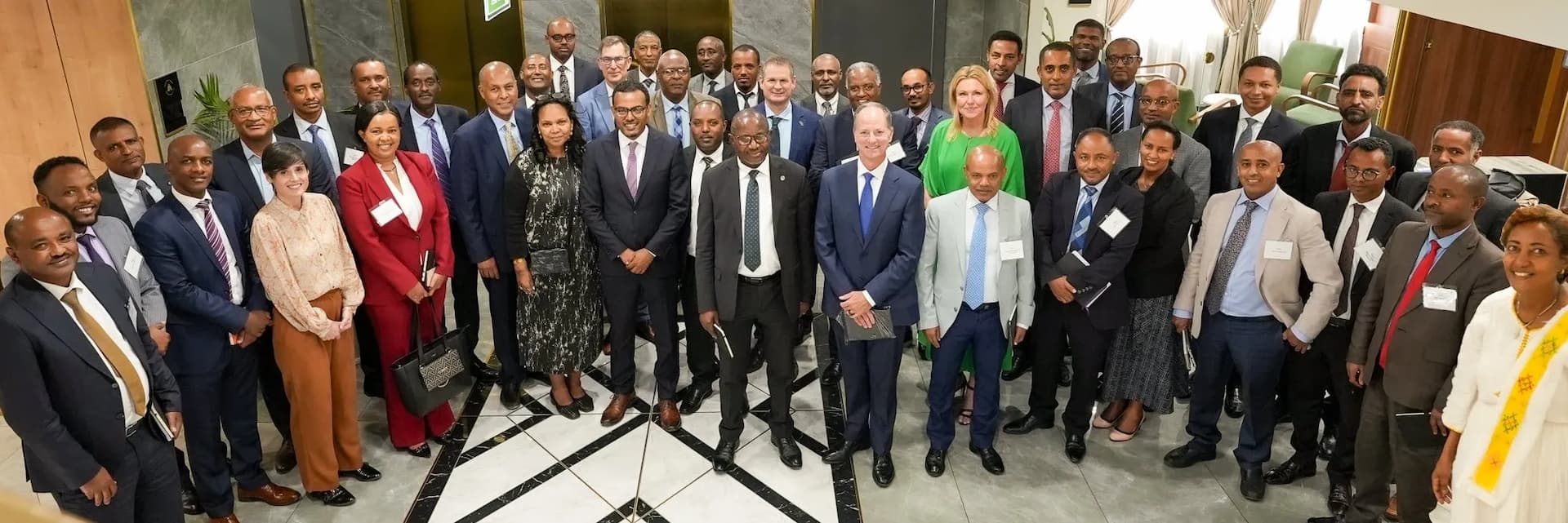Progress for 0 ad
Progress for 1 ad
Progress for 2 ad
Progress for 3 ad


Eyasu Theodros
Addis Ababa, Ethiopia

An engineer in Frankfurt wires $1,000 to Ethiopia in seconds. A nurse in Washington, D.C. tops up her parents’ account before finishing her shift. Technology has made remittances seamless. But remittances are designed to be spent. They cover rent, school fees, groceries and then they’re gone. They don’t stay long enough to strengthen reserves or change the system’s footing. The real challenge is not whether Ethiopians abroad will send, they already do. The harder question is whether Ethiopia’s banks can earn enough credibility for the diaspora to trust them with even a modest savings balance.
That figure does not matter in terms of its size whether it is $200 or $2,000. What matters is the signal. If the system can be trusted with a small sum, it opens the door to larger commitments. Passing that trust test would show that money can not only move through Ethiopia’s banks but also remain in them. And that simple shift from a transaction that vanishes to a deposit that endures is what separates short-term flows from long-term stability.
For families, a small deposit is support. For banks, it is the foundation of reserves and resilience. Yet today, keeping money in Ethiopian banks is hardly seen as an option. Over the years, efforts such as Unite Ethiopia and Debo carried strong patriotic messages. They resonated emotionally but rarely translated into deposits. Banking is different: it runs not on appeals to loyalty, but on confidence and trust.
When those campaigns failed to turn goodwill into lasting deposits, attention shifted back to what felt easier to deliver: transactions. Apps multiply. Exchange-rate promotions come and go. Partnerships are announced weekly. These moves have made sending money faster and more convenient with over 90 operators currently licensed by the National Bank of Ethiopia. But speed is not the same as staying power. Dollars still arrive, get converted, and disappear, useful for families, but leaving no foundation behind.
Remittances are essential, but they are not enough. They solve immediate needs, but they don’t settle into reserves. This reveals a deeper challenge Ethiopia has yet to solve attracting capital that stays, not just flows that pass through. The little over $5 billion Ethiopia processed in remittances last year is a timid drop in the ocean of what could be. Until the system can inspire confidence to hold money, not just move it, Ethiopia will keep winning remittances but losing the stability that only deposits provide. Weak deposit insurance/visibility, poor interest returns, limited foreign-currency savings options and regulatory uncertainty are but a few of the barriers.
This challenge is especially urgent because the competitive landscape is changing. Ethiopia is opening its doors to foreign banks not just as distant competitors abroad, but as branches operating inside the country. A diaspora professional could one day walk into a foreign bank in Addis Ababa and deposit savings under the same standards they trust in Washington or Frankfurt.
At that point, the comparison will no longer be between local banks alone. It will be between local institutions that ask for loyalty and global brands that demonstrate credibility. Unless Ethiopian banks make the shift, they risk being bypassed in their own market. Diaspora capital will flow to whoever offers safety, transparency, and confidence. If local institutions cannot provide it, foreign banks will.
Fixing this won’t be purely technical. It requires clear depositor protections, visible audits, and products that speak to diaspora needs: competitive time-deposits, transparent FX treatment, and frictionless digital onboarding. A small, well-advertised pilot backed by a publicized guarantee and audited results would tell the market whether Ethiopian banks can be trusted to hold money, not only move it.
The stakes could not be higher. Foreign exchange is Ethiopia’s pressure point. Factories wait for inputs. Importers hold back on orders. Families watch inflation hollow out their earnings. Quick inflows ease the pain, but they don’t build reserves. Stability only comes when money stays.
That is why the credibility test facing Ethiopia’s banks is so critical. The competition for diaspora capital has already begun, and soon it will not be between local banks alone. It will be between institutions that rely on patriotic appeals and those foreign or local that demonstrate trustworthiness.
Passing this test is not about how many apps get launched or how fast a transfer can be processed. It is about whether Ethiopia’s financial system can inspire confidence strong enough for diaspora customers to let their money stay, not just move. Meeting that standard would mark the difference between a system that survives on flows and one that grows on trust.
👏
😂
❤️
😲
😠

Eyasu Theodros
Eyasu Theodros is a U.S.-licensed financial advisor serving global diaspora clients. He provides investment and retirement guidance to professionals across the U.S. and advises financial institutions on diaspora behavior, trust dynamics, and inclusive financial system design.
Your Email Address Will Not Be Published. Required Fields Are Marked *